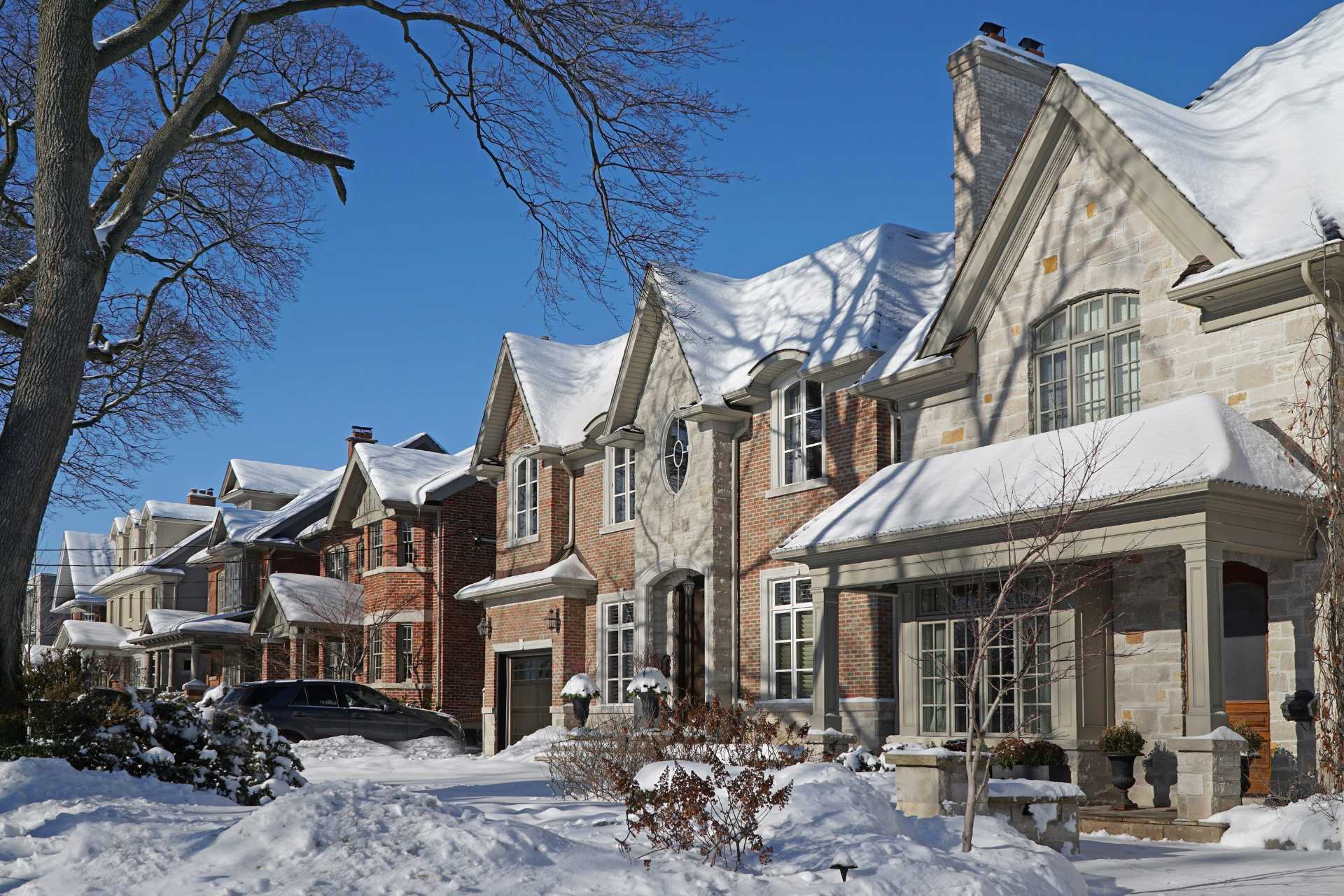5 Tips For Protecting Your Home From Freezing Temperatures (and Keep Your Family Cozy)
Canada's Winter season is wonderful, with beautiful white snow paired with nice, cold weather conditions. However, with that being said, the winter season increases the likelihood of freezing temperatures and other severe weather that are not comfortable and can harm a person's living space. Neglecting your property throughout the winter can have serious repercussions, such as pipe break or roof damage. These types of damages are hard to fix during the winter time, as it can potentially be damaged again due to the weather conditions. Having said that, here are five suggestions to help you keep your house safe and cosy while protecting it from the cold weather.
1. Insulate Your Home
A critical first step in defending your property against the damaging impacts of frigid weather is insulation. Insulation serves as a barrier, preventing heat from escaping from your home and preventing heat gain. Insulating your home will protect it from the destructive impacts of frigid temperatures while also increasing its energy efficiency. Sealing any air leaks should be one of your home's main insulation priorities. These can be found near windows, doors, and electrical outlets and cause considerable heat loss. You may stop these air leaks and lessen the amount of heat that escapes from your house by applying weather stripping or caulking. This not only increases the energy efficiency of your home but also helps to keep it warm and cosy throughout the colder months. Making sure that your walls and attic are adequately insulated is another crucial part of insulating your house. Heat rises, and if the attic is not appropriately insulated, heat can escape through the roof. This makes attic insulation extremely crucial. Your home's overall energy efficiency may be increased by decreasing heat loss by installing more insulation to the attic. Insulating your home not only makes it more energy-efficient but also prevents your pipes from freezing. In cold weather, pipes are prone to freezing, which can cause them to break and seriously harm your property. Your house will stay secure and functioning if you insulate your pipes to keep them from freezing and causing damage. And lastly, insulating your house might aid in lowering your heating expenses. You may minimise your energy costs and reduce monthly spending by retaining heat in your house and minimising heat loss. This helps to increase the cost-effectiveness of your house while also making it cosier and more inviting to live in.
2. Maintain Your Heating System
As a homeowner, you wouldn't want your heating system to fail on one of the coldest days of the year during the severe winter months. Maintaining your heating system and making sure it's in excellent operating condition are essential if you want to keep your house from freezing in the winter. Failure to do so might result in expensive repairs and perhaps more serious harm to your house. Having your heating system regularly maintained is one of the best methods to shield your home from frigid weather. A professional should do a complete examination as part of this so they can look for wear and tear and make any repairs that are required. This can assist you in preventing any failures and ensuring that your system is operating properly and efficiently. Making sure the heating system is operating at its best is a crucial component of heating system maintenance, as well. This involves checking for any air leaks in the ductwork, changing or cleaning the air filters, and making sure the system is suited correctly for your house. Your heating system will consume more energy if it is not operating at its most effective level, which might lead to greater heating costs and more system wear and tear. Additionally, it's crucial to examine the security components of your heating system, such as the carbon monoxide and fire alarms. In an emergency, these characteristics can assist to keep you and your family safe and avert any possible catastrophes. Finally, it's critical to take fast action if you detect any indications that your heating system needs repair, such odd noises, elevated energy bills, or inconsistent heating. Ignoring them may eventually lead to more serious damage and more expensive repairs.
3. Protect your Pipes
It is crucial to make sure that your pipes are protected from freezing temperatures as winter approaches. Your home might sustain serious harm from frozen pipes, including floods and broken pipes. You must take the appropriate precautions to safeguard your pipes from the cold weather in order to avoid such disastrous disasters. Insulating your pipes is one of the best methods to safeguard them. This entails wrapping the pipes with materials that will trap the heat, such as foam, fibreglass, or other materials. Pipes are less prone to freeze because insulation helps to maintain the internal temperature. Additionally, insulated pipes will lessen the amount of heat lost, resulting in a home that uses less energy. Maintaining the warmth of your pipes is another crucial safeguard. You may do this by keeping the heat on while you are away from home. You may also let warm air flow around the pipes by opening the cupboards and doors under the sink. Keep the vents open if you have a crawl space so that air may flow through. Keeping your pipes from being exposed to severely cold temperatures is also vital. For instance, pipes in unheated spaces like basements, attics, or garages are more prone to freezing. You can attach heating tapes or cables around the pipes to avoid this. These appliances create heat using energy, which keeps the pipes from freezing.
4. Keep Your Roof Clear
Throughout the winter, it is crucial to take precautions to safeguard your property from the elements, particularly cold temperatures. The roof should receive special attention since it protects your house from the cold and snow. Snow and ice buildup on your roof can contribute to house damage prevention, increased energy efficiency, and peace of mind. Maintaining a clean roof has several advantages, but one of the most important is that it stops ice dams from forming. When snow on the roof melts and then refreezes, it forms an obstruction known as an ice dam that stops water from draining off the roof. Water can leak through the roof when the snow and ice build up, harming the structure, insulation, and ceilings. By routinely clearing snow and ice from your roof, you may lessen the chance that ice dams will form and your property will sustain damage. Better energy efficiency is an advantage of maintaining a clean roof. Your roof's accumulation of snow and ice acts as an insulating barrier, trapping heat inside your house. Your heating system may have to work more to maintain a comfortable temperature as a result, increasing your energy expenses and lowering its efficiency. You may lessen the amount of heat that is trapped inside your home and increase the effectiveness of your heating system by maintaining a clean roof. Furthermore, the ultimate benefit of maintaining a clean roof during the winter is peace of mind. You'll feel more confident to handle the chilly winter weather knowing that your roof is shielded from the conditions that come with the season. Your home will stay secure and protected throughout the winter if you regularly remove snow and ice from your roof. You can also further reassure your home’s security by investing in a metal roofing system.
5. Create an Emergency Kit
As winter approaches in full force, it is crucial to be ready for any crises that can occur. Making an emergency pack that will keep you and your house safe during the winter is one approach to do this. An emergency kit that is well-stocked may provide you peace of mind and guarantee that you are ready to tackle any catastrophe that may happen. Making an emergency kit is important for a variety of reasons, but one of the main ones is to have access to supplies in case of power outages. Widespread power outages that might persist for several hours or even days can be brought on by winter weather conditions like a lot of snow and ice. Having a well-stocked emergency kit can provide you access to the non-perishable food, water, flashlights, and additional batteries you'll need to live. Being ready for winter weather is a key factor in the decision to put together an emergency pack. Road closures, travel delays, and hazardous driving conditions can all be brought on by winter storms. When a winter storm is approaching, having an emergency kit with supplies like a shovel, warm clothes, and road salt will help you and your house stay safe and secure. A first aid kit should be included in your emergency pack as well. Having a first aid kit on hand will help you respond swiftly to any situations that may arise since winter weather conditions might result in an increase in accidents and injuries. Basic first aid materials including bandages, gauze, and painkillers should be included in this pack.
Although Canada’s winter season is an enjoyable time of the year, it does come with harsh weather conditions that can potentially damage your home. There are many ways that you can protect your home from freezing weather, and they include insulating your home, maintaining your heating system, protecting your pipes, keeping your roof clear and creating an emergency kit. By making sure that you do these actions routinely, you are reassuring that you, your family and your home will all be safe during this winter season.

